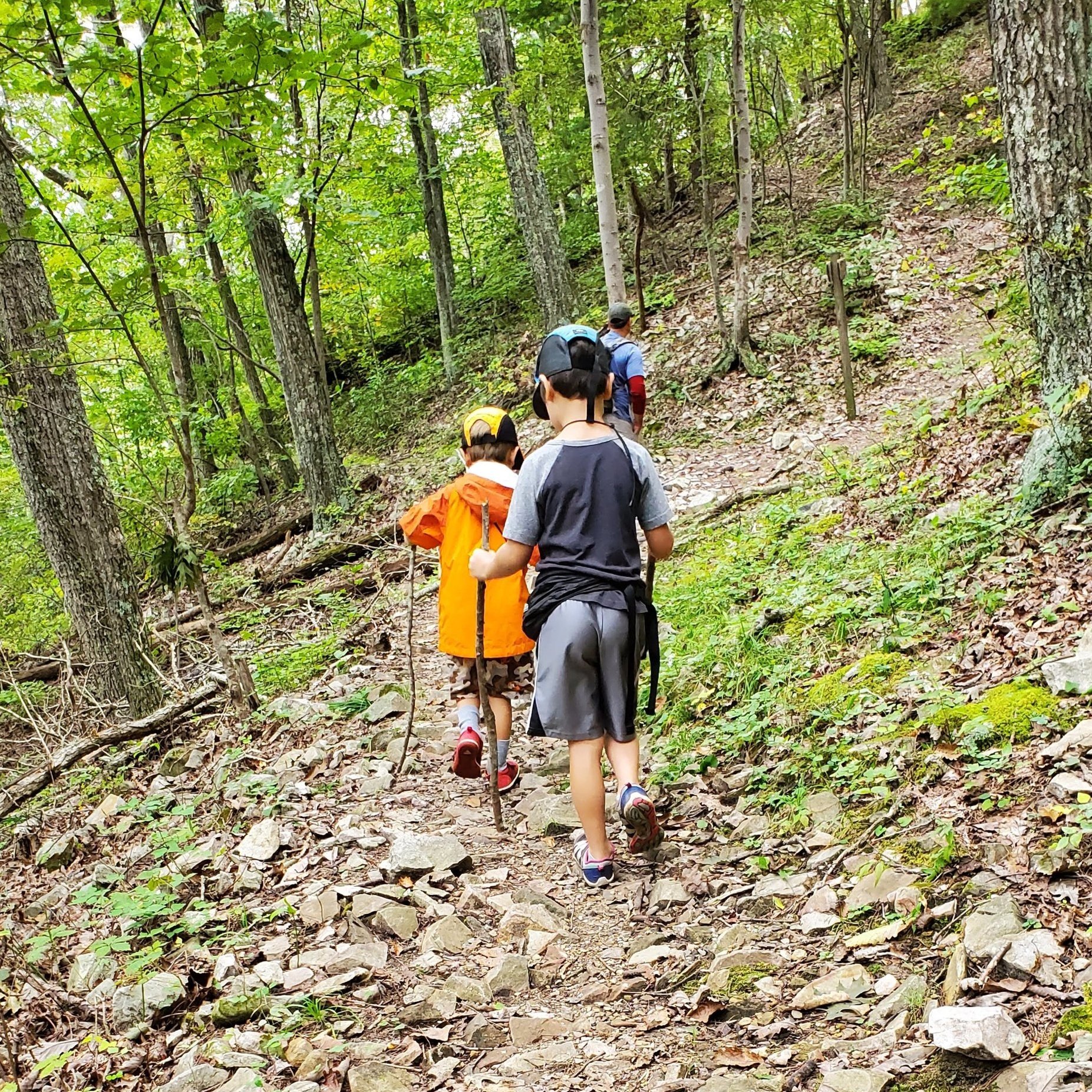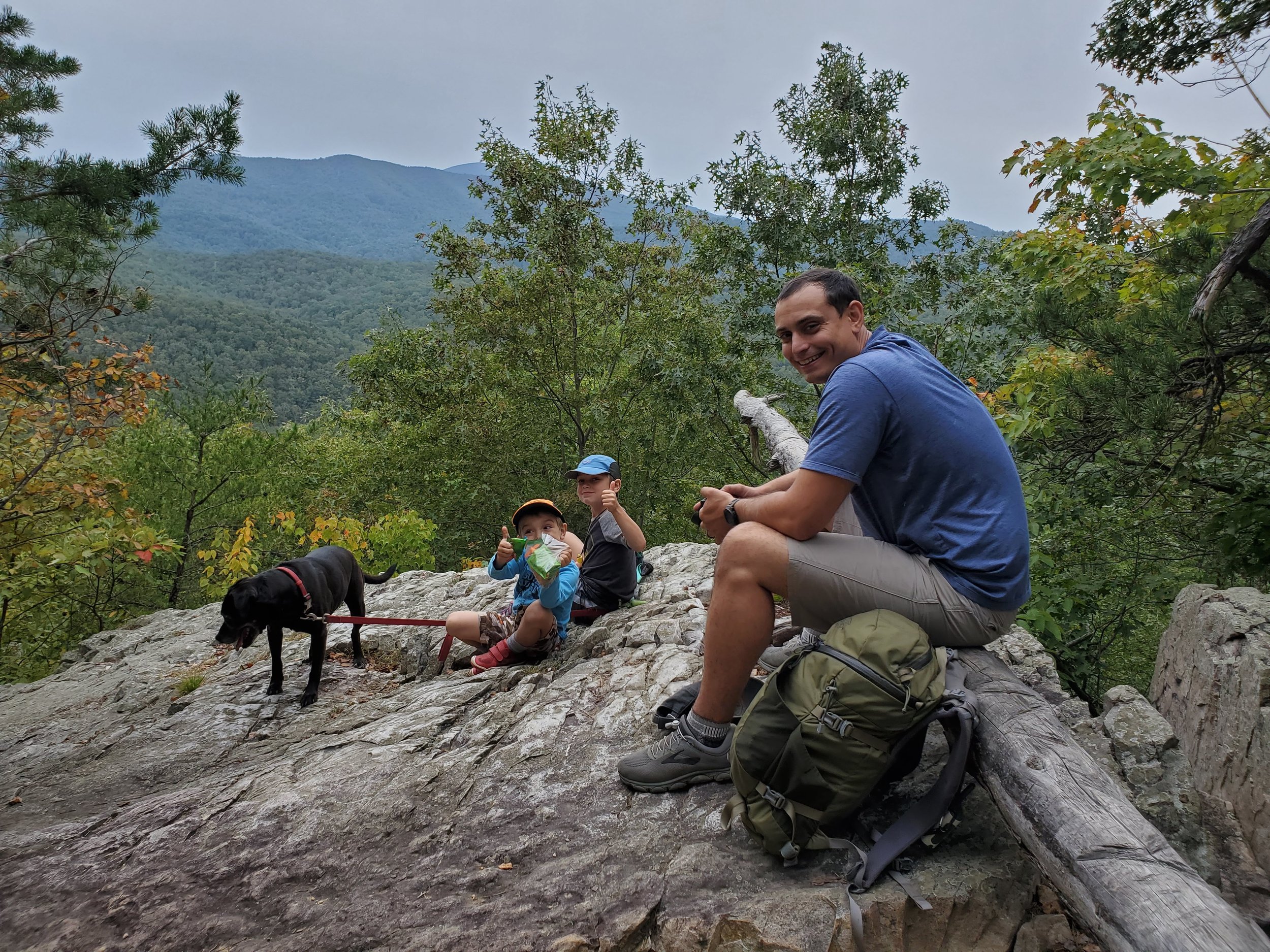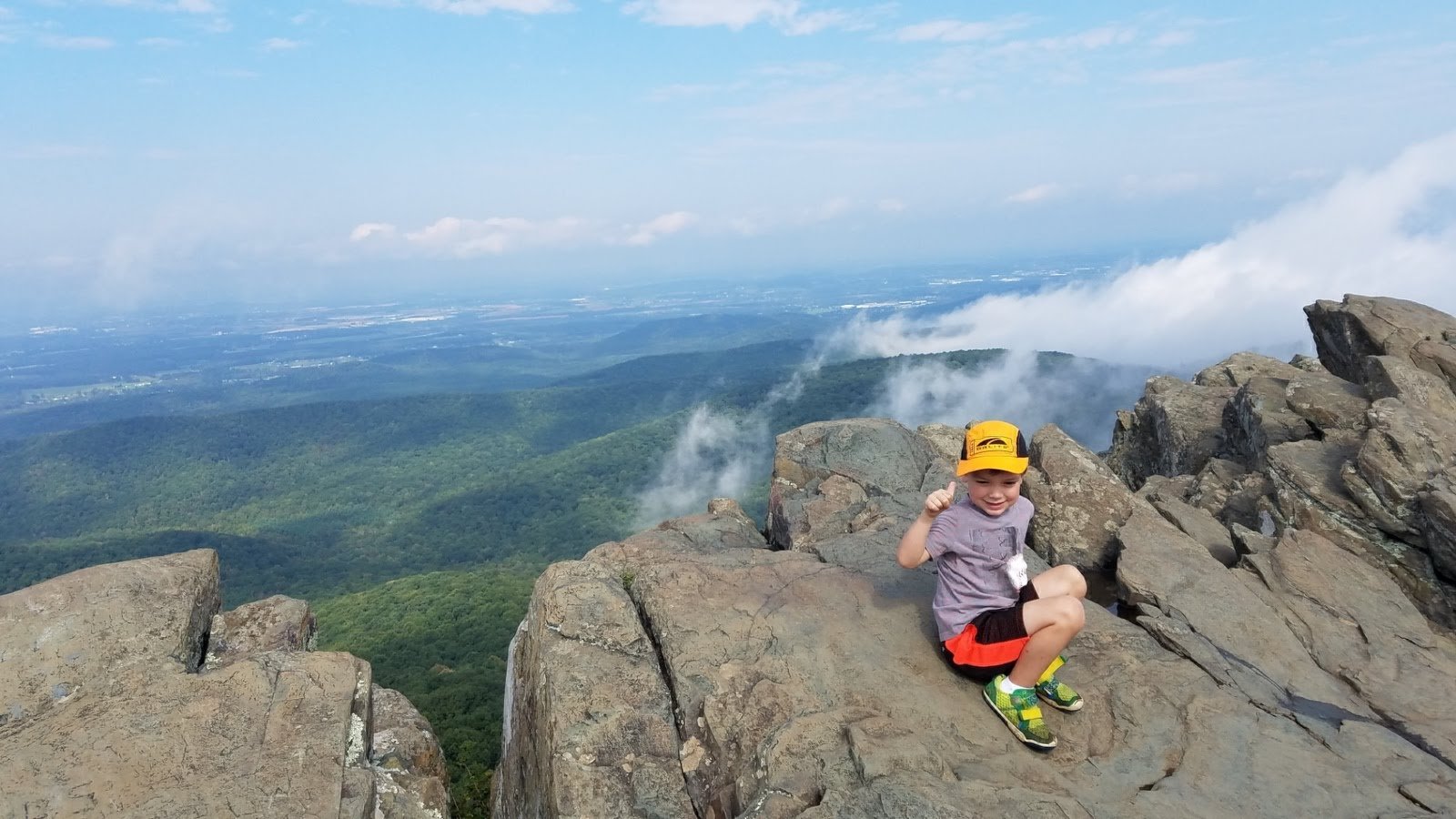Proud parent of a kid who hikes one mile an hour here...
A recent editorial in Outside Magazine posited the thought, "I don't care if your toddler climbs a mountain." The author, Kristi Langlois, goes on to describe the frustration she feels that, seemingly, everyone around her has their 2-year olds shredding the slopes or conquering the trails. Meanwhile, her precious child "spends most hikes either begging me to carry her or ricocheting between a flat-out run and a complete standstill. We pause for long periods to examine mushrooms and spiders, eat snacks, or play. Some days we’re out for four hours and barely cover two miles. Some days she resists leaving the house at all."
Three things I love about this article- and you may too..
I'm not alone! We are outdoorsy people- heck, I met my husband at the rock climbing gym and we worked together at Blue Ridge Mountain Sports while dating. Yet our standards for a family hike are, max,2-3 miles with many, many, many snack breaks over 4 hours. So many snacks (bribes).
Stop and enjoy what the child is exploring. If I wanted to push my kid through 5 miles I probably could; albeit with tears and temper tantrums (no guarantee which age bracket those are limited to). But then we'd miss that really cool rock shaped like a bug or that weird bug that looks like a rock. We'd miss the hour-long chat about the eagle that's gonna swoop low over our head and maybe pick one of us up then drop us or steal our snacks (real conversation had on a trail once).
The lesson applies to adults, too. Not everyone needs a goal to earn a superlative. Instead of trying to earn an -est on your adventure (fastest, longest, craziest, etc), turn your focus on being there. Look up, crouch down, flip over rocks. Dare to have fun like a kid.
If the point of a hike is to expose our children to the natural world, I suggest letting them teach us how to observe it at their pace.
Langlois writes, "Ensuring that our children’s relationship to the outdoors is one of gratitude and joy rather than competition and conquest may require a shift in our own deeply entrenched mindsets." [...read more]



